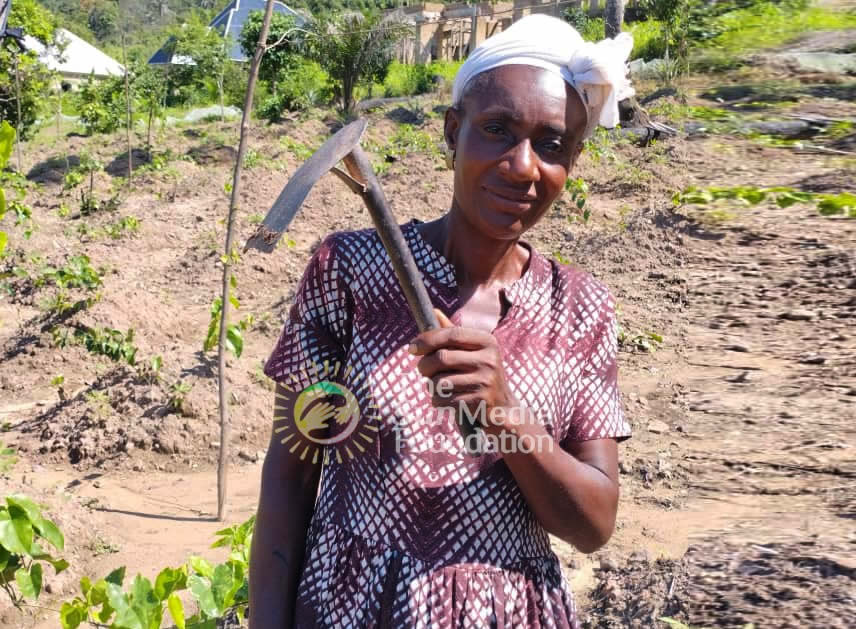Food security is a global challenge that affects millions of people worldwide. With a rapidly growing population and increasing demands for food, it is crucial to find sustainable ways to produce enough food to feed everyone while minimizing the negative impact on the environment. Sustainable agriculture practices play a pivotal role in achieving this goal. By implementing these practices, we can ensure a more efficient, stable, and resilient food system, meeting the global demand for food while preserving our natural resources.
The Growing Need for Sustainable Agriculture
According to the United Nations, the global population is projected to reach nearly ten billion by 2050. With such a substantial increase, food production must rise by 70% to meet the booming population’s demands. Today, over one billion people depend on farming for their income, making the possibility of producing enough food with limited resources a growing concern. Sustainable agriculture provides a solution to this challenge.
Understanding Sustainable Agriculture
Sustainable agriculture refers to the production of food, fiber, or other plant or animal products using techniques that ensure the long-term sustainability of food sources while minimizing the negative impact on the environment. It aims to protect natural resources, expand them when possible, and create a better life for animals and humans. By reducing reliance on standard farming practices and providing alternative food options, sustainable agriculture contributes to the preservation of our resources and the promotion of a healthier future.
The Importance of Sustainable Agriculture
The significance of sustainable agriculture cannot be overstated. With the growing population and its increased demand for food, it is essential to practice farming in environmentally responsible ways. Sustainable agriculture helps preserve natural resources, promotes social equity, and ensures economic profitability. By reducing the environmental impact of traditional farming systems, sustainable agriculture results in higher yields and healthier products for consumers. It aims to protect vital resources like soil fertility, which is critical for long-term farming success. Additionally, sustainable agricultural methods can benefit areas with limited or scarce resources, making it an important solution for addressing food security concerns.
Benefits of Sustainable Agriculture
Sustainable agriculture offers a wide range of benefits that contribute to food security, environmental preservation, and social equity.
Environmental Benefits
Sustainable agriculture employs eco-friendly approaches, such as crop rotation, intercropping, and companion planting, which help protect soil health and water quality while eliminating the need for damaging practices. By reducing reliance on limited natural resources, this approach minimizes the environmental impact and ensures the preservation of our ecosystems.
Economic Benefits:
Implementing sustainable agriculture practices can create stronger local economies and economic opportunities for small-scale farmers. It allows them to produce more food with fewer resources, resulting in financial advantages over conventional farming methods. Sustainable agriculture is less vulnerable to droughts and natural disasters, reducing economic losses and creating a more stable agricultural sector.
Social Benefits
Sustainable agriculture promotes social equity by creating a more equitable food system. It helps ensure consistent access to affordable food for everyone, regardless of their economic situation. By adopting sustainable production methods, agricultural harvests become more reliable and adaptable over time, benefiting communities and fostering stronger connections between farmers and consumers.
Positive Impacts on Food Security
Sustainable agriculture practices have a significant positive impact on food security. They contribute to the creation of an efficient, stable, and resilient food system, enabling us to meet the global demand for food. Moreover, these practices protect natural resources and mitigate the effects of climate change on crop yields, ensuring a consistent food supply for present and future generations.
Implementing Sustainable Agriculture
Implementing sustainable agriculture practices is achievable at any scale. Methods such as using renewable energy sources, promoting organic farming, and reducing pesticide use can significantly reduce environmental impact. Education and awareness play a crucial role in promoting sustainable agriculture methods and encouraging people to choose sustainable food options. By providing information and resources, individuals can make informed decisions about their food consumption and support sustainable farming practices.
Alternative Food Options
In addition to sustainable agriculture, alternative food options are crucial in preserving the environment and reducing reliance on traditional farming methods. Alternative food systems include urban farming, plant-based diets, and community-supported agriculture. These approaches offer a more sustainable, healthier, and cost-effective way of producing food compared to traditional farming practices. Embracing alternative food options not only reduces the strain on our resources but also provides delicious and nutritious alternatives for individuals seeking healthier and more environmentally friendly choices.
Protecting Our Planet and Creating a Healthier Future
Sustainable agriculture is not only essential for our present but also for building a healthier future. It offers environmental, economic, and social benefits that contribute to the well-being of the entire population. By implementing sustainable agricultural practices like conservation tillage, crop rotation, and alternative food options, we can improve food security, conserve our resources, mitigate the impacts of climate change, and create a healthy planet for future generations.
Adopting sustainable farming techniques is increasingly vital for our long-term well-being. Its primary goals are to enhance environmental protection, increase economic stability, and improve the quality of life within communities. Sustainable agriculture is not a standalone solution, but it is an essential building block in taking preventative measures to maintain the resources we have left.
While the journey to implement sustainable agriculture practices globally may seem daunting, every small step taken brings us closer to achieving this admirable goal. By prioritizing sustainable agriculture, we can contribute to addressing food security challenges, reducing environmental degradation, and building a more equitable and sustainable food system. Through education, awareness, and the adoption of alternative food options, we can protect our planet, support local communities, and create a healthier future for ourselves and future generations.

